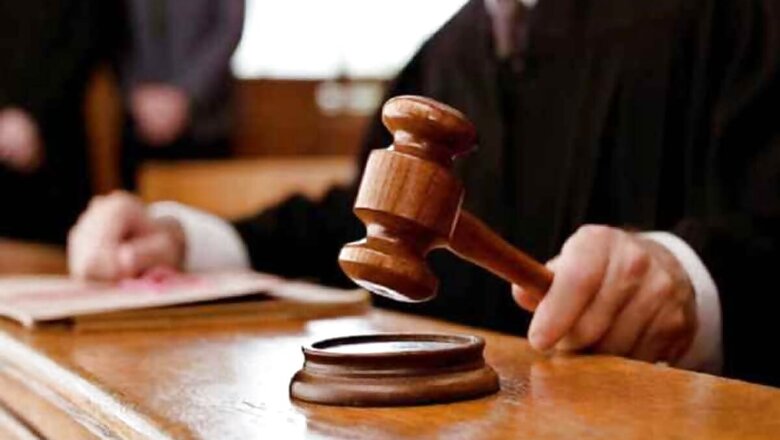Foreign lawyers and law firms will soon be able to practice in the country as the Bar Council of India (BCI) has agreed to open doors by tweaking rules.
The BCI has come out with the ‘Bar Council of India Rules for Registration and Regulation of Foreign Lawyers and Foreign Law Firms in India, 2022’ to enable international lawyers and arbitration practitioners to practice in India.
“Opening up of law practice in India to foreign lawyers in the field of practice of foreign law; diverse international legal issues in non-litigious matters and in international arbitration cases would go a long way in helping legal profession/domain grow in India to the benefit of lawyers in India too,” the BCI said in a notification.
The move will not let India suffer any disadvantage if it is opened up “in a restricted and well-controlled and regulated manner”, the BCI stated.
According to a report by Bar and Bench, the rules make it clear that a foreign lawyer or law firm shall not be entitled to practice law in India without registration with the BCI.
This prohibition will not apply to law practice by a foreign lawyer or foreign law firm on a ‘fly in and fly out basis’ for the purpose of giving legal advice to a client in India on foreign law or international legal issues. However, in this case, the lawyer/firm cannot have an office in India, and their practice cannot exceed 60 days in any period of 12 months.
The registration fee for a foreign lawyer is $25,000 and for a law firm, the fee is $50,000.
According to the report, an application for registration of foreign lawyers/law firms must be accompanied with the following documents:
A certificate from the Government of India, (Ministry of Law & Justice and Ministry of External Affairs and Trade) that an effective legal system exists in concerned foreign country of the primary qualification and that it has no objection in case the applicant is registered under these Rules and practices law in India; (However the Bar Council of India may seek any information from any departments/Ministries of any foreign Countries, if it thinks necessary and/or it may contact any. Foreign Government/Department in case if any information required.)A certificate from the Competent Authority of the concerned foreign country of primary qualification certifying that the applicant is entitled to practice law in that CountryA certificate from the Government of the foreign country of primary qualification that advocates enrolled under the Advocates Act, 1961 are permitted to practice law in that country in the manner and to the extent which is comparable to the law practice permitted under these Rules along with copies of the relevant Laws and RulesA certificate from the Competent Authority of the concerned country of primary qualification or any other competent authority/ies, Courts, Bar Association, Bar Council etc. that the applicant has been in practice in that countryA certificate of the competent authority of the concerned foreign country of primary qualification that no proceedings of professional or other misconduct are pending either before it or before any other authority competent to entertain and decide such proceedingsA certificate of the competent authority of the concerned foreign country of primary qualification giving details of the fee structure and other amounts chargeable from an advocate enrolled under the Act for enabling him to practice law in that country along with relevant Rules and Laws‘No objection Certificate’ of the competent authority of the concerned foreign country of primary qualification that it has no objection in case the applicant starts law practice in India and that the applicant enjoys a good standing in the BarA declaration on affidavit that the applicant has not been convicted of any offence and has not suffered any adverse order in any disciplinary matter. (In case he has suffered relevant attested any conviction/adverse order, copies of the order of conviction/adverse order and other related documents about the matter like appeal and stay, if any, or sentence/fine suffered/paid etc. are to be annexed)A declaration on affidavit that the applicant has no objection and consents to the making of enquiries and investigation by the Bar Council of India on its own or through such government or non-government investigating agency, as it may deem fit, to verify the veracity of the particulars disclosed by the applicant in the application and genuineness of the documents annexed therewithAn undertaking on oath that he/it shall not practice Indian law in any form or before any court of Law, Tribunal, Board or any other Authority legally entitled to record evidence on oathA declaration on oath that he/it shall not be entitled to and shall not claim any interest on the guarantee amount deposited by him/it with Bar Council of India at the time of registration under these Rules and that the Bar Council shall be entitled to adjust and apply this guarantee amount to the penalty and cost amounts that may be awarded by the Bar Council of India under the provisions of these RulesA declaration on oath that the applicant fully understands and appreciates the fact that on registration under rule 7 of these Rules, the Advocates Act, 1961 and Rules made there under, mutatis mutandis, apply to him/it in respect of law practice by him/it in India and that he/it is subject to the jurisdiction of Courts of Law in India and to the jurisdiction of Bar Council of India in relation to such practiceThe Rules also state that the right to practice law in the concerned foreign country of primary qualification shall be the primary qualification for practicing law in India.
Registration shall be valid for a period of 5 years. Foreign lawyers/firms are required to renew it by filing an application for renewal within 6 months before the date on which such validity expires.
BCI may not reject an application for registration/renewal unless a reasonable opportunity of being heard has been afforded to the applicant. The Council shall be the final authority in all these matters.
The Central government shall have the right to recommend cancellation of registration or renewal at any time on the ground of national security, or if it is of the opinion that such registration or renewal is against the national interest, “or for any other valid ground”.
Read all the Latest India News here




















Comments
0 comment